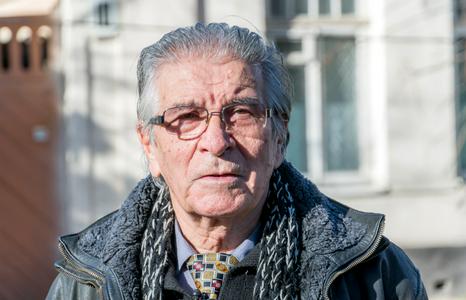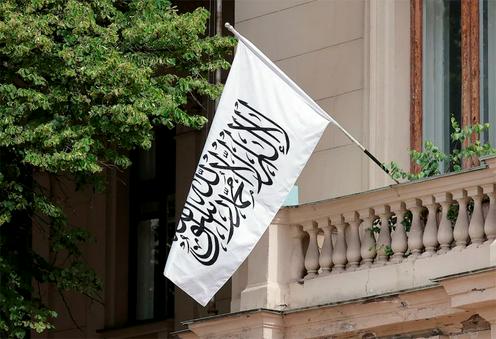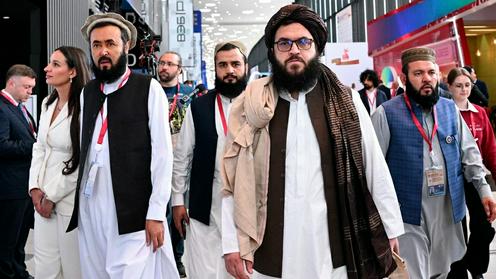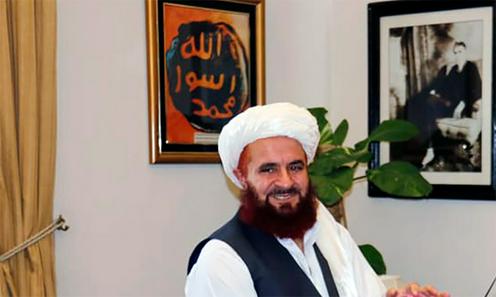The past few years have been marked by seismic shifts across virtually every aspect of human life. But it is political changes that continue to have the most profound global impact. Among the most significant recent developments is Russia’s decision to recognize the Taliban-led state — the Islamic Emirate of Afghanistan. This move is poised to reshape how other nations, particularly those in Central Asia, position themselves in relation to the regime in Kabul.
The Graveyard of Empires
Russia has become the first country in the world to formally recognize the Taliban's authority. Russian Ambassador to Kabul Dmitry Zhirnov described the decision as a historic milestone.
One is reminded, involuntarily, of Bulgakov’s The Master and Margarita — the moment when Berlioz asks Woland, “Are you a historian?”
“I am a historian,” the Prince of Darkness replies with gravity. “This evening at the Patriarch’s Ponds, there will be an interesting story.”
And indeed, the current recognition of the Taliban emirate follows a rather “interesting story” of its own — filled not only with twists and turns, but also with violence, fear, and political calculation.
For centuries, Afghanistan has proved a stumbling block for major powers—earning it the ominous nickname “the Graveyard of Empires.” In more recent memory, this includes clashes involving the British and Russian empires during the so-called Great Game, the Soviet-Afghan War from 1979 to 1989, and the U.S.-led intervention from 2001 to 2021. Time and again, outside forces have attempted to remake Afghanistan in their own image, only to find themselves defeated or drained by the effort.
In 2020, as the United States prepared to withdraw from Afghanistan, it signed a deal with the Taliban in Doha. Under the agreement, Western forces would exit the country, and the Taliban would open negotiations with the Afghan government led by President Ashraf Ghani. Those negotiations, however, never materialized. In 2021, Ghani fled to the United Arab Emirates, and the Taliban swept into power with striking ease as the last American troops departed.
What followed was a four-year period during which no country officially recognized the Taliban government. In most of the world, the group remained designated a terrorist organization. Yet the idea of simply erasing a heavily armed, ideologically driven Islamic regime—one that controls territory and harbors camps for various militant organizations—was never realistic. This was clear not only to the United States, often seen as the global policeman, but also to Afghanistan’s immediate neighbors.
Back in 2016, Russia launched what became known as the Moscow Format (MF) of consultations on Afghanistan. The initiative brought together regional powers, including India, China, Iran, Pakistan, the Central Asian republics, the then-Afghan government, and the Taliban. At the first meeting in 2017, the Taliban—then still regarded primarily as a large terrorist organization—occupied a relatively weak position. But by the latest round of talks, held in October 2024, the group, now firmly in control of Afghanistan, had emerged as the central player at the table.
The international community’s primary demands of the Taliban have remained consistent: to respect human rights—particularly women’s rights—and to form an inclusive government that represents the country’s diverse ethnic and political groups. None of these conditions has been met. Nevertheless, the diplomatic ice has begun to crack.
In a striking development, a Central Asian republic was the first to take a public step toward legitimizing the Taliban. In the summer of 2024, Kazakhstan became the first country in the world to remove the group from its official list of terrorist organizations. Kyrgyzstan followed suit that fall. Meanwhile, Uzbekistan and Turkmenistan intensified trade and economic ties with Kabul. Still, there is a critical difference between delisting the Taliban and officially recognizing the group as the legitimate government of Afghanistan. So far, only the Russian Federation has dared to cross that line.
The Good Will Defeat the Bad
A natural question arises: why was it Russia that granted the Taliban a full and unconditional pardon?
The Kremlin’s official stance is that recognition was extended in the interest of regional stability and security. President Vladimir Putin’s special envoy for Afghanistan, Zamir Kabulov, was even more blunt, declaring that the Taliban are “our objective allies, whom we must support—arming them in every sense of the word—so that they can successfully eliminate even the smallest pockets of international terrorism.”
If Kabulov is to be believed, the core idea is that Afghanistan will act as a suppressor of global terrorism. There is some precedent for this view: the Taliban have long been at odds with both al-Qaeda and ISIS-Khorasan. But does this mean they’re now ready to play global sheriff?
Fergana has previously reported that the United States, too, has taken tentative steps toward reconciliation with the Taliban leadership. It’s possible that, building on ideas first floated during Barack Obama’s presidency, Donald Trump envisioned turning the Taliban into a kind of U.S. proxy in radical Islam—a counterbalance to hostile Islamic states and terrorist groups that oppose Washington.
In March of this year, the United States began negotiations to restore full diplomatic relations with Afghanistan. Shortly before that, the country was removed from Washington’s list of national security threats. Almost immediately afterward, Russia’s Prosecutor General’s Office petitioned the Supreme Court to suspend the ban on the Taliban’s activities. First, Russia delisted the Taliban as a terrorist organization. Then, it formally recognized the Islamic Emirate governed by the group.
But does one swallow make a spring? Can Russia’s recognition truly help legitimize the Taliban regime on the world stage?
Political analyst Andrei Serenko believes that one of the Taliban government’s key problems lies not only in external recognition but also in its internal legitimacy. All previous Afghan regimes—including those that had ties with the Soviet Union—possessed some degree of legitimacy. They weren’t propped up solely by force; they had emerged through electoral processes.
The Taliban, by contrast, seized power in Afghanistan through brute force. “Their current legitimacy,” Serenko argues, “is the legitimacy of terrorists who have hijacked a plane.” According to him, the Taliban’s rise was based on two mechanisms: first, military conquest; second, a deal struck with the United States in Doha in February 2020. Therefore, Serenko concludes, the Taliban remains an illegal regime—an armed group that took power by force.
A natural question arises: if all this is true, why would Russia want to cooperate with terrorists? Do Zamir Kabulov’s words about arming the Taliban mean more than simply equipping the “good” terrorists—those loyal to Moscow—against the “bad” ones, like ISIS-K?
After all, who poses a greater threat to Moscow: terrorist groups that have no real power to destabilize the Russian state, or the so-called collective West, which supports Ukraine and has hounded the Kremlin with wave after wave of sanctions? The answer seems self-evident.
In this light, perhaps Russia’s embrace of the Taliban isn’t just a message to militants—it’s a signal to Western governments. There is a world of difference between pitting one set of bearded militants against another and publicly demonstrating that a heavily armed Islamist regime, with deep experience in both warfare and terror, is now aligned with Moscow. What if Russia and the Taliban were to enter not only a political alliance but a military one?
“Think carefully, gentlemen—do you really need this kind of headache?” the Kremlin seems to be telling the West. “Or haven’t you already got enough problems?”
That said, in practice, no Afghan fighter with a beard is ever going to march off to Europe or elsewhere to wage war on ordinary civilians. Yes, recognition of Afghanistan’s current government by a major power like Russia is undoubtedly significant for the Taliban—but that hardly means they’ll become anyone’s proxy or follow a foreign strategy. Diplomatic relations? Certainly. Economic ties? Gladly. But carrying out anyone’s bidding? Never—that’s not why the Taliban came to power.
The question is, does everyone understand this? In recent years, many of the Kremlin’s most theatrical gestures have been aimed less at the outside world than at its own domestic audience. When the tiny island nation of Nauru backed Russia by recognizing Abkhazia and South Ossetia, Russians joked, “Now we fear nothing—Nauru is with us!” But the Taliban are no Nauru. The fact that they are now friendly with Moscow may leave a far stronger impression on the average Russian citizen.
One can repeat endlessly that the Taliban are localized actors, that they care only about Afghanistan, and have no interest in venturing beyond its borders. But to that, someone might reply: That may have been true before—but will it always be so? And if the Taliban do develop ambitions outside their homeland, might those ambitions be leveraged? That’s not such a simple question to answer.
Will It Snap?
Interestingly, Russia’s recognition of the Islamic Emirate was even welcomed by China—despite the apparent contradiction with Beijing’s strategic interest in checking Russian influence in the region. But it seems that China sees more benefit than risk in the legitimization of the Taliban. Foreign Ministry spokesperson Mao Ning stated that China would continue its friendly policy toward the Afghan people and support cooperation between nations across various sectors.
Opposition forces to the Taliban take a starkly different view. Former Afghan Foreign Minister Rangin Dadfar Spanta called Russia’s recognition of the Taliban regime “deeply regrettable.”
“Russia is the first country to recognize the Taliban’s repressive regime,” Spanta said. “This is only the beginning. In the absence of broad resistance, others may soon follow.”
The National Resistance Front of Afghanistan warned that Russia’s move effectively legitimizes terrorist organizations and erodes the barriers that protect constitutional governance across the region.
“A direct result of the Taliban’s takeover has been the empowerment of extremist groups such as Tehrik-i-Taliban Pakistan*, Tajikistan’s Jamaat Ansarullah*, the Islamic Movement of Uzbekistan*, ISIS-K, al-Qaeda, Hizb ut-Tahrir*, and others,” the group stated, “many of which have already extended their terrorist activities into Russian territory.”
The picture that emerges is a curious one. If critics of the Taliban are to be believed, Russia is, directly or indirectly, endorsing a situation in which terrorist bases have proliferated across Afghanistan—including those run by groups actively waging war against the Russian Federation. Some may believe that by cultivating close ties with Afghanistan’s leadership, Moscow can get it to rein in the “bad terrorists.” And in some cases, perhaps it can. But certainly not all, because global terrorism does not take orders from the Taliban. As already suggested, Russia’s objectives in this story likely go well beyond counterterrorism.
Under the Influence of Radicalism
It is increasingly clear that Russia has its own motivations in embracing the Taliban—motivations that are not always easy to decipher. But what does this mean for the countries of Central Asia, which are far more vulnerable to developments in Afghanistan—not just because of geographic proximity, but due to cultural and religious affinities as well?
On the whole, the Central Asian republics have adopted a cautiously positive stance toward Afghanistan’s current leadership. The notable exception is Tajikistan, which remains a staunch opponent of the Taliban. As early as 2022, President Emomali Rahmon publicly criticized the group, stating that the Taliban had failed to convince either the international community or the Afghan people of the legitimacy of their rule, their ability to maintain control, ensure public safety, or address the country’s deepening socio-economic crisis.
Moreover, Tajikistan provides refuge to opponents of the Taliban from among the Afghan Tajik population.
The other four Central Asian states, as mentioned earlier, are willing to cooperate with Afghanistan’s current authorities. Recent meetings in Baku with Acting Deputy Prime Minister of Afghanistan Abdul Ghani Baradar serve as clear evidence of this.
On July 3, a Turkmen delegation attending the Economic Cooperation Organization summit in Azerbaijan met with Baradar. The very next day, on July 4, Uzbekistan’s President Shavkat Mirziyoyev also held talks with him. Both meetings focused on expanding partnerships in political-diplomatic and trade-economic areas.
Given these developments, a natural question arises: which country will be next in line to recognize the Taliban regime? There is a strong likelihood that it will be one of the Central Asian states. Unlike, say, the United States or even Russia, Uzbekistan, Turkmenistan, and Tajikistan share direct borders with Afghanistan. This means security concerns are of vital importance to them.
Afghanistan, in turn, is heavily dependent on imports and trade in general. Economic and trade ties with Central Asia offer it valuable opportunities for economic stabilization. This incentivizes the Afghan government to be more vigilant in securing its borders to prevent terrorist groups based within its territory from crossing into neighboring countries.
But when discussing the possibility of regional countries recognizing the Taliban, certain ethical issues must be considered. The primary concern is the violation of human rights—both everyday rights and political freedoms.
Yet, can we truly say that the current Taliban is unchanged from what it was a decade ago? Back then, it was a militarized terrorist organization. Now, the Taliban forms the core of Afghanistan’s state apparatus. Seizing power is one thing; holding onto it is quite another. To govern the country, the Taliban must bureaucratize, become less radical, and to some extent adapt to circumstances—including listening to the opinions of other nations.
This inevitably raises the next question: what will happen as more countries begin to recognize the Taliban’s rule? Will this legitimize terrorism, as feared by the Afghan Freedom Front, or will it, conversely, reduce radicalism and push the Taliban toward greater civility—especially in domestic politics?
Of course, everyone hopes for the latter. But this is one of those cases where you can’t make an omelet without breaking eggs, and without concrete political steps, it will be difficult to determine the truth. In the end, life itself will likely provide the answer.
-
 14 February14.02From Revolution to Rupture?Why Kyrgyzstan Dismissed an Influential “Gray Cardinal” and What May Follow
14 February14.02From Revolution to Rupture?Why Kyrgyzstan Dismissed an Influential “Gray Cardinal” and What May Follow -
 05 February05.02The “Guardian” of Old Tashkent Has Passed AwayRenowned local historian and popularizer of Uzbekistan’s history Boris Anatolyevich Golender dies
05 February05.02The “Guardian” of Old Tashkent Has Passed AwayRenowned local historian and popularizer of Uzbekistan’s history Boris Anatolyevich Golender dies -
 24 December24.12To Clean Up and to ZIYAWhat China Can Offer Central Asia in the “Green” Economy
24 December24.12To Clean Up and to ZIYAWhat China Can Offer Central Asia in the “Green” Economy -
 23 December23.12PhotoTokyo DriveJapan to invest about $20 billion in projects across Central Asia over five years
23 December23.12PhotoTokyo DriveJapan to invest about $20 billion in projects across Central Asia over five years -
 17 December17.12Sake for SixCentral Asia’s Rapprochement with Japan Comes with Hidden Pitfalls
17 December17.12Sake for SixCentral Asia’s Rapprochement with Japan Comes with Hidden Pitfalls -
 17 December17.12Gulshan Is the BestYoung Uzbek Karateka Becomes World Champion
17 December17.12Gulshan Is the BestYoung Uzbek Karateka Becomes World Champion






